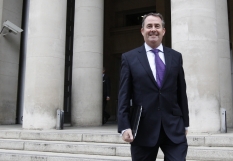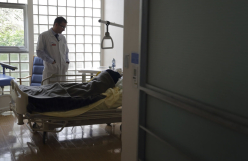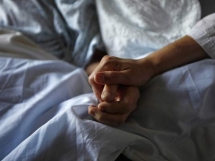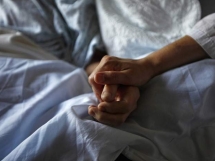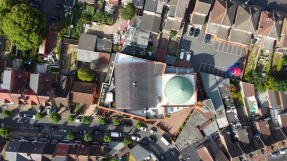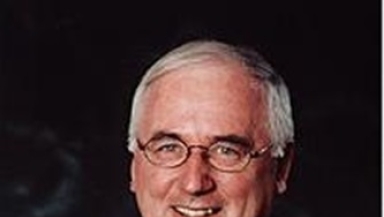
With a law legalising assisted suicide expected to be passed in Canada soon, a Catholic archbishop has warned that sick people who want to kill themselves will not be able to receive the last rites even if they ask for this.
Archbishop Terrence Prendergast of Ottawa said instead of administering the last rites, priests should pray with these people and their families, adding that any person who requests for assisted suicide doesn't have the right disposition to receive the last rites, the Catholic News Agency reported.
"Asking to be killed is gravely disordered and is a rejection of the hope that the rite calls for and tries to bring into the situation," the archbishop said, according to Canadian Catholic News.
The last rites – which is the sacrament given to the elderly or gravely ill – includes the forgiveness of sins.
"But we cannot be forgiven pre-emptively for something we are going to do – like asking for assisted suicide when suicide is a grave sin," Prendergast said.
Canadian lawmakers are preparing new assisted suicide laws that would nullify a previous legislation criminalising assisted suicide. Previously, those who counselled, aided or abetted a suicide in Canada faced up to 14 years in prison.
However in February 2015, the Supreme Court of Canada unanimously ruled that doctors may help patients who have severe and incurable suffering to end their suffering through assisted suicide. The national parliament was then tasked to craft a legal response to the decision.
Last Feb. 25, the Canadian government issued an official report saying that all publicly funded health care institutions must provide euthanasia and assisted suicide. This includes Church-run hospitals, hospices and nursing homes. The report states that doctors who have religious or moral objections should refer a patient seeking for assisted suicide to a doctor willing to grant that wish.
A full response from parliament is expected by June 2016.
Many other Catholic bishops have denounced the proposed law on assisted suicide.
"Caring for the dying does not include killing them or helping them kill themselves," Bishop Douglas Crosby of Hamilton, the president of the Canadian Conference of Catholic Bishops, told the Canadian Parliament last Jan. 20.
Crosby said instead of allowing assisted suicide, the Canadian government should prioritise palliative care, fund further research and education in pain relief and advance suicide prevention programmes. He said the government must also guarantee conscience rights in law.
The Catholic bishops of Alberta also voiced their rejection of the proposed law in a Feb. 11 message for the Catholic Church's World Day of the Sick.
"The decision of the Supreme Court of Canada makes legally permissible in some circumstances what is morally wrong in every circumstance: the taking of innocent human life. This is unacceptable in a truly just and ethical society," they wrote.
They said "no Catholic may advocate for, or participate in any way, whether by act or omission, in the intentional killing of another human being either by assisted suicide or euthanasia."
"When any life can be taken at will, the dignity of all lives is seriously eroded and respect for human life in our society as a whole is diminished."
The bishops warned that the law will place some people at serious risk, including the disabled and the mentally ill.










